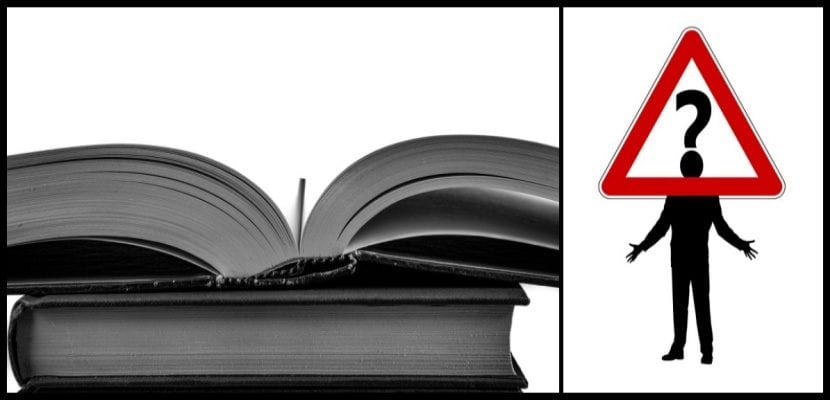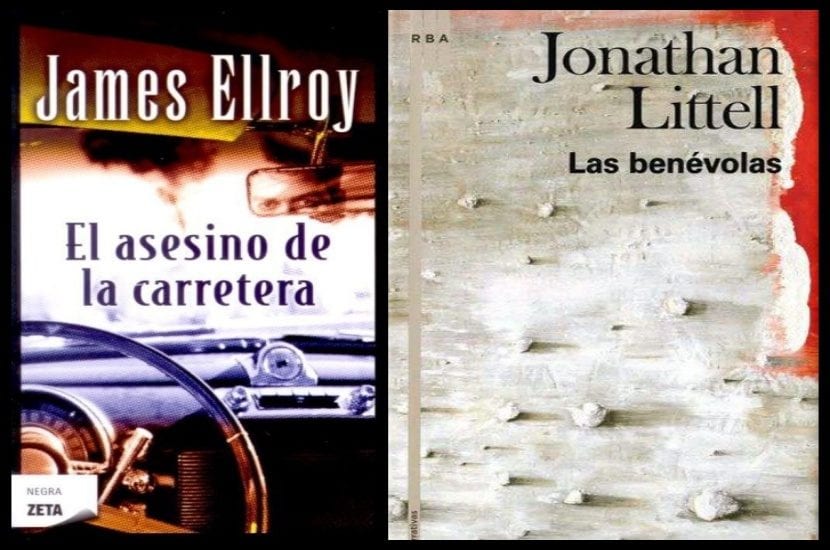
Why am I reading it?
We started that book because it attracts us. Because it has excellent reviews of brainy critics. Because it's from one of our favorite writers. «Ugh, the last of Fulanito, the most! It cannot fail, ”we tell ourselves. Because is the most sold and we trust the sales lists a lot. Because our it was recommended by a friend, blown away by him, and he's our soul mate and we want to share his enthusiasm.
Anyway, what we start. The days pass, read… Our daily reality is calm, not without lack of time and some little problems, but calm. And suddenly, the feeling comes. «But I am having a bad time but bad with this book. What am I doing reading it? ». Be careful, it is not that it is bad, it is that we are having a very bad time with what we read. But we have strength and we finish it. Why? Which ones has happened to you? Have you left them? Let's see…
It hasn't happened to me many times. Also, the simplest thing when something makes you feel uncomfortable is to leave it. With the pair that I remember I had a really bad time. Even so, I managed to finish them, although I have to admit that I skipped pages and pages of one. We all know that is not a good sign.
The issue was the uneasiness they generated in me. The harshness and rawness of what they told and how they told it. We must also take into account the circumstances in which we read certain books and the keys that they manage to play the deepest, twisted and morbid interior that we can have. And that is also a merit. Here are those couple of titles.
The Benevolent (2007) - Jonathan Littell
From this author I did not want to read more after finishing this novel, surely the most recognized that he has. But of course, it was World War II, a personal weakness. Anyway, my eye went away. I missed more.
When one mixes almost a treatise on semiotics, a very disturbing and disturbed former SS officer, the Holocaust, the Eastern Front and an incestuous relationship, the wise thing to do is to gather courage. If we add the flowery definitions of the critics such as "cult title", "novel of the year", "exceptional discovery", etc., the wisest thing to do is still tremble. Yes, sometimes you don't know where you're getting, but I did. It was not an obligation, of course.
The fascinating power of this book is proportional to its pretentiousness. And if you keep reading its more than a thousand pages of eternal chapters, few points and, in some parts, that treatise on semiotics of Caucasian languages, you come to the conclusion that it is only because of pride.
The complexity of characters, structure and content does not skimp on highly graphic details, eschatology in between also or military jargon. So it becomes a challenge. "This crazy, psychopathic bastard is not going to be able to me." And, miracle, you finish it. Perhaps it is simply to know that ending. And for this, the author scores two goals: one that he doesn't care about readers at all. And two: what uses a very old trick, the most twisted morbid by recreating the images generated by reading, especially that of the most rugged passages.

Awkward readings ...
Highway Killer (2008) - James Ellroy
And what about the comfort reading Ellroy? For some it is a genius, for others it is unbearable, for all it is complex. Most have been able to read one or a couple of his books. Some of us have smoked almost all of us. Ellroy is not half measures, far from easy. The killer of the road it is one of the least easy to digest.
For its stark rawness in the recreation of the most savage and cruel violence. And for one of those characters that fascinate as well as horrify. The recreation of evil in its purest form which (perhaps that is what terrifies the most) is based on the real evil that fiction tends to overcome. In this case, it is the autobiography that a ruthless and brutal serial killer decides to write when they put him in prison. A) Yes, narrated in the first person, we go on a journey to hell across the United States where we witness the most heinous crimes that happen without stopping.
That feeling I was talking about I had it very vividly at one point from the time I read this novel. I taught English and went to the house of a nine-year-old girl a couple of times a week in the most perfect Madrid in the Salamanca district.
Well, on the subway rides I was reading this novel. It was precisely on one of those trips back home after one of those nice classes when suddenly my sight of reading went away. I remember it was one of those shocking passages, raw and without anesthesia, so characteristic of Ellroy. The question was immediate. What am I doing reading this?
Conclusions
It is easy to answer: it is that contrast of real everyday life with the great evocative power of literature. These questions perhaps assail us every day from the most stark, bleak and cruel reality that does happen. But we're too used to that. So, even if they are in uncomfortable or difficult readings, once again the literature shows its essence of remembering that we can have, have and accept those feelings. Even with the worst of times.
I am in the habit of not trusting criticism, literary awards or blogs, but rather my intuition. And honestly, with Lorenzo Silva's latest book "The Country of Scorpions" he failed me. I left it on page 50. Why if a book that you carry 50 pàg. It does not attract you, you better close it for another, than with the endless list that I have, I can not waste time.
Greetings Mariola and thanks for this blog (and for many more things)
Thanks for your comment, Araceli.